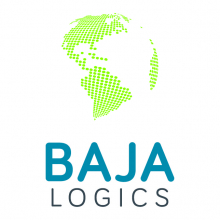
There are 7 Companies in Mexico
that provide Disaster Recovery Services!
Mexico’s ICT sector has been experiencing strong growth in recent years, and this is caused by several factors such as an increasing number of IT professionals that are involved in developing the country’s IT infrastructure and as well as the number of new IT companies that are being founded in Mexico.
Discover Top IT Companies in Mexico specialized in Disaster Recovery and other related services. Find the best IT service providers for your projects.
Disaster recovery services are like a safety net for your business's data and operations. They help you prepare for unexpected events like natural disasters or cyberattacks, ensuring that you can quickly recover and continue your business even in challenging circumstances.
More than 327 verified IT companies specialize in providing disaster recovery services. These companies have expertise in creating and implementing strategies to protect your data and IT infrastructure. Well-known IT companies offering disaster recovery services include IBM, Dell Technologies, and Hewlett Packard Enterprise (HPE).
Handpicked companies • No obligation to hire • 100% risk-free
Featured Companies in Mexico
This month, the following Disaster Recovery companies managed to provide an outstanding service and support. It's worth taking a look.

Mexico City, Mexico Head office in: United States
Access the Top 1% Tech Talent | 1500+ In-House Developers | Trusted by Fortune 500 Companies

Federal District, Mexico Head office in: Chile
Tech specialists for Software Development, e-commerce, Cloud Solutions and Staff Augmentation services.
Explore Top Disaster Recovery Companies in Mexico
Web hosting, domains and SSL certificates.
Your Nearshore DevOps and Cloud Technology Partner. At ClickIT, we have built more than 300 cloud-native SaaS applications for startups and mid-large...
ERP, MES Bajalogics Business Software Solutions and Software Development Services for companies of all sizes and verticals
Filter Disaster Recovery Companies in Mexico by Cities
Find the right tech company near you or from a specific city. Some of the best companies might be located in smaller cities.
Find more Disaster Recovery companies around the world
TechBehemoths is the world's most advanced and user-friendly platform to match IT Companies with real clients without hustle.
IT Industry in Mexico: General Profile & Companies
Mexico’s ICT sector has been experiencing strong growth in recent years, and this is caused by several factors, such as an increasing number of IT professionals that are involved in developing the country’s IT infrastructure and as well as the number of new IT companies that are being founded in Mexico. At this moment, more than 600.000 IT professionals are working within the industry, and each year the number is growing by 65.000 based on a report from Insights Technology.
Additionally, in 2025, Mexico is predicted to experience significant development in the IT sector with a revenue equal to $16.1 billion, according to Statista. The biggest segment is IT Outsourcing, with a market revenue of $6.05 billion in 2025.
As for the business environment, in Mexico, it is very diverse as it brings together companies from every corner of the world. Since most of the multinational companies are located in Mexico City, it is common to see a large Chinese telecom company in the same building as a large Spanish bank, opening the door to many multicultural interactions. The country has undergone significant economic reforms over the years, resulting in increased competitiveness and a more favorable investment climate.
Why You Should Consider Working With Mexican IT Companies?
Having Guadalajara as the main IT hub, Mexico manages to attract all types of ICT companies of all types and sizes. To name just a few: Oracle, Intel, and IBM invested and opened representations in Mexico, which is a good indicator of a well-developed IT infrastructure. Mexican IT companies are taking advantage of the presence of US companies and implementing technologies and business processes from the neighboring countries, making them more competitive in the IT market.
At the same time, local IT companies in Mexico tend to have the client's best interest at heart. They are highly creative in exploring solutions to a problem and even combine components that other places would not even try. In addition, customer service orientation tends to be better than what can be found in other countries.
What to Be Aware of When Working With Mexican IT Companies
Despite its notable expansion, the IT sector in Mexico is still secondary to manufacturing. As more companies continue to view the country as an ideal location to offshore their IT services, the need for high-level IT professionals - such as engineers - will become even higher.
The void created in the Mexican IT industry makes companies vulnerable and unpredictable with potential clients, and has developed issues such as piracy, a lack of strong cybersecurity, and poor project management.
In addition, those who want to do business with local IT companies in Mexico should provide a clear scope and requirements in writing. Also, they should schedule regular follow-up sessions to avoid deviating from the plan and to make sure goals are being met.
Are Mexican Companies Reliable?
In the past 5 years, IT Mexican companies have become important players in the global IT industry, registering a progress of 8 positions and now ranking among the top 20 biggest digital services providers. The main types of IT services Mexican companies export are Cloud Computing, E-government services, and Creative Services. Due to their contribution, Mexican IT companies are considered more reliable and affordable at the same time compared to other countries in the region, making Mexican-based companies a balanced choice.
How Mexican IT Infrastructure Relates to the Neighboring Countries
In the past 4 years, Mexico has taken as a reference the US IT industry, which allowed it to grow and develop, as well as to attract an increasing number of international IT companies to its market. In spite of the continuous efforts, Mexico is still behind the US in terms of IT development, but on the other hand, it is considered probably the best IT option in Central America. The IT industry in Mexico performs relatively well compared to countries such as Brazil and Argentina, with a growing number of startups and a strong focus on innovation and technology adoption.
Overall, Mexico is a good example of why it’s never too late to invest in IT, and how to do it to become competitive, and it looks like a promising destination for developing IT products and services, sourcing them out, or attracting investments in the IT industry.
What Makes Mexico Attractive For IT Businesses?
According to Francisco Avelar from SellNow Inc., Mexico is in the top 10 economies worldwide, and it's the second-largest market in Latin America. Mexico has close ties to very large economies such as the U.S., Spain, Germany, France, and the UK, just to name a few, which allows it to receive large amounts of direct investments. But in 2025, Mexico is ranked at the 15th position among other economies worldwide. Nowadays, the concept of nearshoring has gained traction, and Mexico is the most suitable candidate for companies around the world that want to enhance their supply chains for the American market.
From another perspective, Shaun Oilund from Senor Data states that Mexico is an attractive location for international IT companies due to its strategic location, competitive labor costs, and growing market opportunities. However, factors such as security concerns, corruption, and bureaucratic hurdles can also make the country unattractive for some businesses.
How Easy Is It to Open a New IT Company in Mexico?
Francisco and Shaun relate that starting a new business in Mexico can be quite difficult: The business climate in Mexico can be challenging for local entrepreneurs looking to start a new IT company. Factors such as complex regulations, limited access to capital, and high levels of competition can make it difficult for new businesses to thrive.
How Does the Mexican Government Support IT Businesses?
According to Francisco, the Mexican Public Sector spends hundreds of millions of dollars every year on technology. Therefore, these institutions are one of the most important customer segments for IT companies in the country. At the same time, Shaun adds that the Mexican government has implemented various initiatives to encourage the development of the IT sector, including tax incentives, investment promotion programs, and initiatives to expand access to broadband internet.
As well, here are some examples of governmental programs that aided the local IT sector in Mexico:
- Red Compartida: The Mexican government launched the Red Compartida project, which aims to create a wholesale 4G LTE mobile network infrastructure across the country. This project involves significant investments in telecommunications and provides opportunities for the IT sector.
- Digital Agenda for Mexico: The government has implemented the Digital Agenda for Mexico, which includes various initiatives and investments to promote the development of the IT sector. This agenda encompasses improving internet connectivity, digital inclusion, e-government services, and fostering innovation and entrepreneurship in the digital economy.
- Technology Parks and Innovation Centers: The government has supported the creation of technology parks and innovation centers across the country, such as the Guadalajara Technology Park and the Monterrey Technology Park. These initiatives provide infrastructure and resources to promote IT development, research, and innovation.
- Conacyt's Support: The National Council for Science and Technology (Conacyt) in Mexico has provided grants, scholarships, and funding opportunities to support research and development in the IT sector. These initiatives aim to strengthen technological capabilities and human resources in the field of information technology.
- Startup and Entrepreneurship Programs: The Mexican government has implemented various programs to support startups and entrepreneurship in the IT sector. These programs provide funding, mentoring, and resources to help tech startups grow and thrive.
- Digital Skills Development: To enhance the IT sector, the government has invested in initiatives to develop digital skills among the population. This includes promoting computer science education, coding boot camps, and vocational training programs to prepare a skilled workforce for the digital economy.
Mexico's IT Talent Pool
Mexico's talent pool is incredibly rich, and it is comprised of highly creative and talented people who usually speak English in addition to Spanish and are also proficient in Microsoft productivity tools and coding. At the same time, the local talent pool in Mexico is characterized by a large number of skilled IT professionals, including software developers, engineers, and project managers. Many Mexican workers are attracted to the IT industry due to its high growth potential and competitive salaries.
This article was created together with prominent figures and professionals coming from reputable Armenian IT companies. Special credits: Francisco Avelar and Shaun Oilund.
What is Disaster Recovery and what are its benefits for your projects?
Disaster recovery services are like a safety net for your business's data and operations. They help you prepare for unexpected events like natural disasters or cyberattacks, ensuring that you can quickly recover and continue your business even in challenging circumstances.
More than 327 verified IT companies specialize in providing disaster recovery services. These companies have expertise in creating and implementing strategies to protect your data and IT infrastructure. Well-known IT companies offering disaster recovery services include IBM, Dell Technologies, and Hewlett Packard Enterprise (HPE).
Disaster recovery service providers use a range of tools and technologies to safeguard data and ensure business continuity. These include backup and recovery software, cloud storage solutions, virtualization technologies, and monitoring systems. Popular cloud platforms like Amazon Web Services (AWS) and Microsoft Azure also play a crucial role in disaster recovery.
Disaster recovery services are typically included in a suite of services that also address business continuity and risk management. Other related services may include:
-
Business Continuity Planning: Developing comprehensive strategies to keep your business running during disruptions.
-
Cybersecurity Services: Protecting against cyber threats and data breaches, which are often a cause of disasters.
-
Risk Assessment: Identifying vulnerabilities and potential threats to your business.
-
Emergency Response Planning: Preparing for immediate actions in the event of a disaster.
-
Data Protection Services: Implementing data encryption, access controls, and data loss prevention measures.
Selecting the right IT company for disaster recovery services requires evaluating their experience, the comprehensiveness of their disaster recovery solutions, and their responsiveness in case of an emergency. Look for providers who offer tailored disaster recovery plans that align with your specific business needs and recovery time objectives (RTOs).
Disaster recovery service providers are essential for various projects and scenarios, including:
-
Data Centers: Ensuring the continuity of critical data center operations.
-
E-commerce Websites: Protecting online businesses from downtime due to technical issues or cyberattacks.
-
Healthcare Systems: Safeguarding patient records and medical systems to ensure uninterrupted care.
-
Financial Institutions: Meeting regulatory requirements for data protection and business continuity.
-
Manufacturing Plants: Minimizing production disruptions caused by equipment failures or supply chain interruptions.
Disaster recovery services are crucial for companies of all sizes and industries, including:
-
Small Businesses: Protecting essential data and ensuring minimal downtime.
-
Enterprises: Managing complex IT environments and maintaining regulatory compliance.
-
Healthcare Providers: Safeguarding patient records and critical medical systems.
-
Financial Institutions: Ensuring uninterrupted banking and financial services.
-
Government Organizations: Maintaining public services and data integrity during emergencies.
Disaster recovery is not a one-size-fits-all solution. It's essential to conduct a risk assessment and work with a disaster recovery service provider to develop a tailored plan that matches your business's specific needs and budget. Regular testing and updates of your disaster recovery plan are also crucial to ensure it remains effective as your business evolves.




